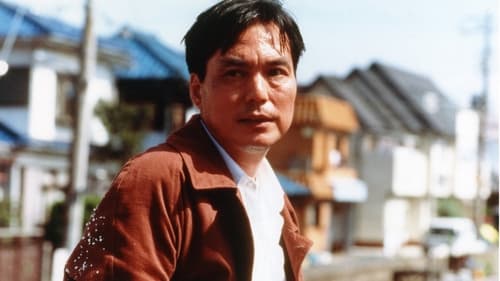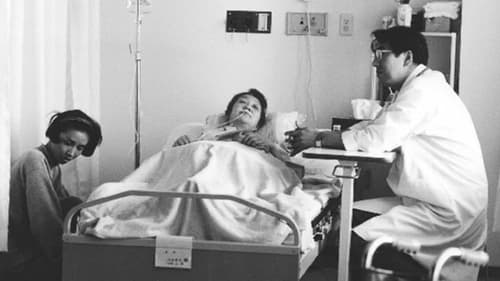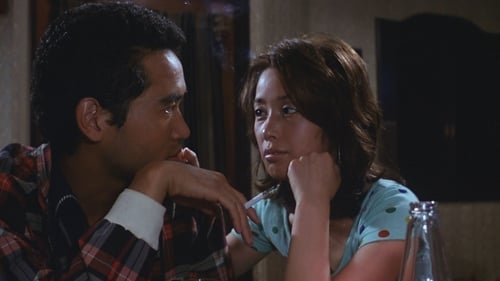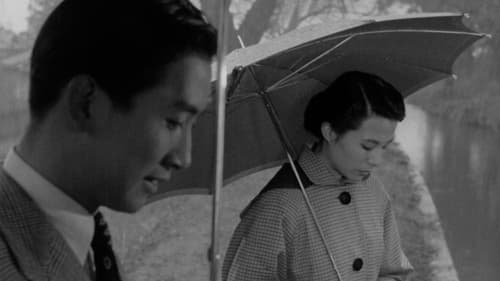
Hamanaka's mother
Hamanaka Koichi returns to his wife Hisako and family in a sadder, run-down section of eastern Tokyo after having run away from home years before. He gives no explanation of his absence and his family asks no questions. It is only through the questions that a young writer named Asakura, who is secretly in love with Hisako, poses of local shop owners, that we learn that Hamanaka's disappearance may be related to the fact that the woman everyone thought he would marry, Tami - who runs the cafe across the street from the Hamanaka electric store - had ended up tying the knot with another man who died soon thereafter.

Haruyo Ikeda
Filmed in a documentary style six patients in six wards of different ages and circumstances await death at a hospital in Japan. The sterile and dismal environment is contrasted against the emotional being of the patients, their visitors and relatives and the outside world, which they will never again survey.

여우비가 내리던 날, 어린 구로사와는 어머니의 충고를 잊은 채 숲에 들어갔다가 여우가 시집가는 장면을 목격하게 된다. 이 사실을 전해들은 어머니는 여우를 찾아가 용서를 빌라고 하지만, 숲으로 다시 들어간 소년의 눈 앞에는 비온 후 무지개가 걸린 아름다운 산이 보일 뿐이다. 또한 그는 누나들과 함께 복숭아를 따러 갔다가 어느 소녀를 만나게 되고, 소녀의 뒤를 쫓아 간 곳에서 복숭아 나무의 정령들을 만나는데...

Rui
원폭의 중심지 히로시마에 내린 검은 비, 즉 방사능 낙진을 맞은 시즈마 부부와 그들의 조카인 야스코는 5년 후 당시 생존자들과 한 마을에 살고 있다. 야스코는 방사능에 의한 병증이 아직은 나타나지 않고 있지만, 시즈마 부부는 그녀가 결혼하고 나서 미래에라도 방사능에 의해 고통을 받을까 노심초사하는데...

Mother of Mitsuo
A young man living on growing tomatoes in a greenhouse in a residential area. Tomato cultivation is as doomed as his personal life where he tries to keep alive his romance with the eccentric Kaede and parents selected fiancee Ayako.

Otoku
나가사키에 있는 독일의료원에서 의학공부를 마치고 에도로 돌아온 야스모토는 시골 병원에서 인턴 과정을 밟게 된다. 귀족들을 상대하는 왕립의료원에서 일하기를 원했던 그는 하층민들이 주로 오는 공동 진료소로 오게 되자 불만을 품게 된다. 하지만 자만심으로 가득 차 있던 야스모토는 ‘붉은 수염’이라 불리는 시골 병원장의 진정한 모습에 점차 동화되어 가면서 진정한 의술을 배우게 된다.

번역일로 먹고 사는 마유미는 결혼을 하지 않아 주위 사람들의 걱정을 산다. 마유미는 결혼 생각이 없다며 대답을 피하지만 사실 그는 오랫동안 한 여성만을 좋아하고 있다. 한편, 마유미는 우연히 만난 친구에게 새로운 일을 제안 받는다. 바로 미군과 사귀는 여성들에게 영어 편지를 대신 써주는 일이다. 기노시타 게이스케 감독이 각본을 썼으며, 다나카 기누요도 마유미의 고객으로 잠시 출연한다. 1954년 칸영화제 경쟁부문 상영.





